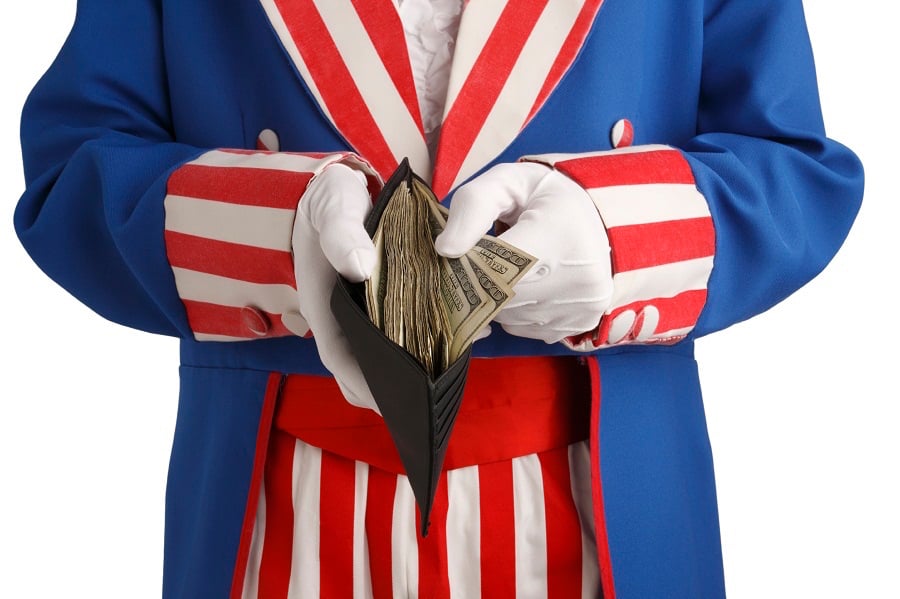As Democratic contenders line up for a chance to take on President Donald J. Trump in the 2020 presidential election, the
increasingly populist tone of calls to tax the rich is not lost on the financial planning community.
"Those moving further left think there is something fundamentally wrong with capitalism, but this kind of thing has been tried before and it doesn't work," said Dennis Nolte, vice president at Seacoast Investment Services.
Like a lot of financial advisers, Mr. Nolte has clients who fall into the
high-net-worth ranks that are being targeted by some of the leading contenders for the Democratic presidential nomination. But Mr. Nolte said his primary opposition to proposals such as a top marginal tax rate of 70% is that they still fall well short of the money needed to finance promises like free college and a government takeover of health care.
"There aren't enough rich people for the 70% tax rate to help," Mr. Nolte said. "The money is in the middle class, so they'll have to go after them as well."
The early campaign proposals being floated include Vermont Sen. Bernie Sanders' suggested
45% tax on estates valued at between $3.5 million and $10 million. The tax would increase to 77% for estates valued at more than $1 billion.
Massachusetts
Sen. Elizabeth Warren is proposing a 2% tax on households with wealth above $50 million, and a 3% tax on households above $1 billion.
New York Sen. Kirsten Gillibrand wants a 50-basis-point tax on stock trades and a 10-basis-point tax on bond trades.
Although she isn't running for president, Alexandria Ocasio-Cortez, a freshman representative from New York, is pushing for a 70% tax on income above $10 million. Fellow freshman Rep. Ilhan Omar of Minnesota wants that top marginal tax rate pushed to 90%.
"They are trying to get the attention of a base that will go out and vote for them, and it seems like things have to keep getting more and more audacious in order to get attention," said Matt Chancey, wealth manager at ClaraPhi Advisory Network.
"Obviously, more people in this country are not impacted by taxing the rich because they aren't rich, so the Democrats are trying to get elected by demonizing the high-income crowd," Mr. Chancey added.
Chris Chen, founder of Insight Financial Strategists, admits he isn't familiar enough with any of the tax proposals to take a firm position, but believes "we've had a lightening of the load by the well-off in terms of how they contribute to society."
"The question isn't do they deserve to keep their money, the question is do people who make a lot of money have an obligation to contribute to society accordingly, and I would say as long as we are in a democracy, the answer is yes," Mr. Chen said. "I don't favor communism or socialism, but a different way would be to have tax reform that would cut the loopholes that exist out there."
Kashif Ahmed, president of American Private Wealth, recognizes that the "proposals will continue to get more and more loony tunes," but he also takes offense at
Democrats' efforts to fuel class warfare for political gain.
"My wife and I are immigrants to this country, and we consider ourselves to be living the American dream because we came here, and we work very hard to be successful," Mr. Ahmed said. "A lot of people say a lot of things, but you have to consider what is possible. You're talking about confiscating money that people have worked hard for. And the people who are really for this kind of socialist nonsense are people who don't have any money."
Paul Schatz, president of Heritage Capital, takes issue with the populist claim that the wealthy need to be taxed at higher rates because they are not paying their fair share.
"They are preying on the populist theme that the rich can certainly afford to pay a little more," he said. "While that may play well on the surface, it's very anti-growth and anti-capitalist."
The fair share argument is also a matter of perspectives.
According to a study by the Tax Foundation, the top 10% of earners in the U.S. pay two-thirds of the income tax that's collected, while the bottom 50% of earners pay just 3% of all income tax.
"The left will say that they just want to restore tax rates to where they were under Bill Clinton or Ronald Reagan when the economy was humming on all cylinders, but what matters to the economy is the trajectory of taxes as much or more than the rate," Mr. Schatz said. "I have heard detractors say that the Trump tax cuts are going to cause a recession, but it is fiscally impossible to put more money in people's pockets and have that lead to less GDP growth."
Thomas Balcom, founder of 1650 Wealth Management, is concerned about the tone of the discussions, which attack people who have become wealthy.
"Saying wealthy people are not paying their fair share resonates with low-information voters," he said. "The wealthy should be put on notice that if some of these folks get in office, they will be going after them. The socialistic ideas are getting a lot of traction."







